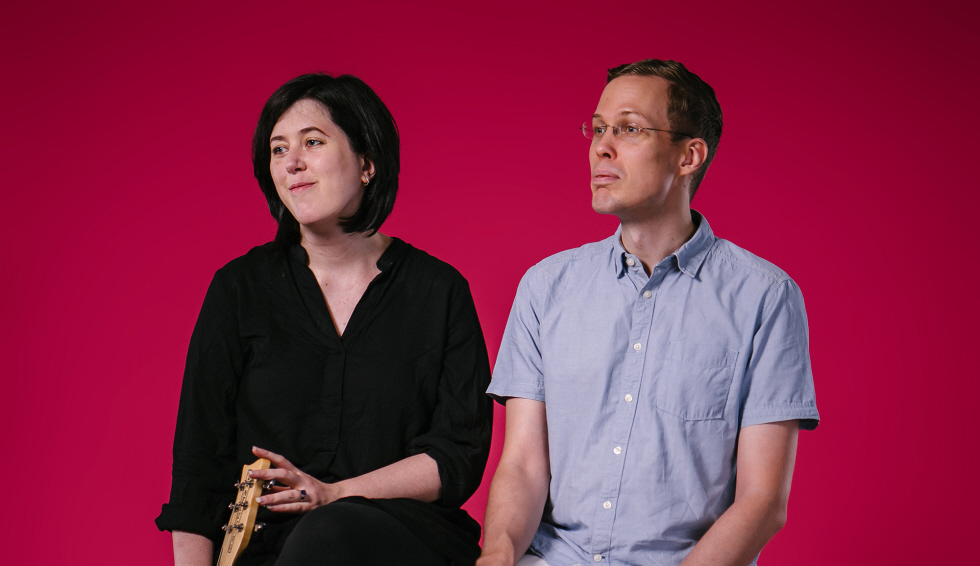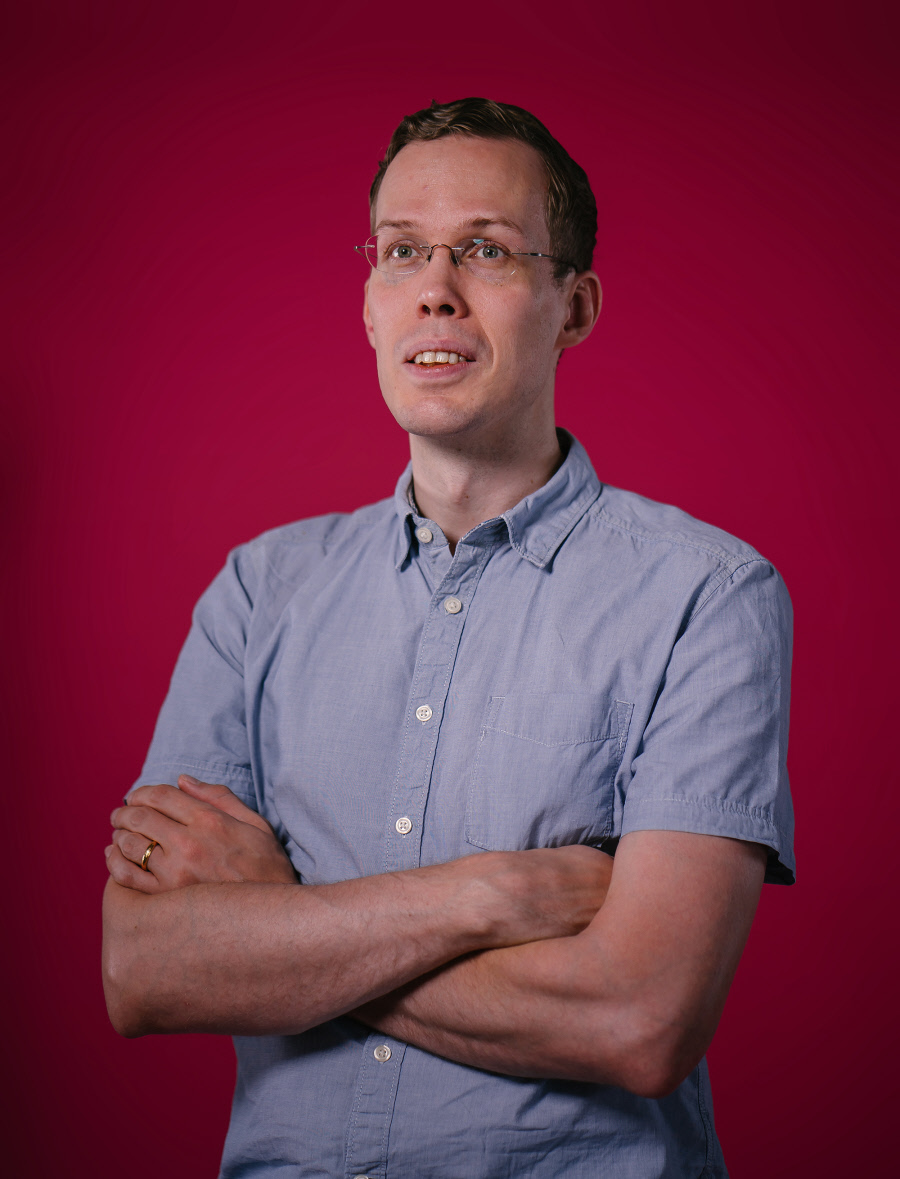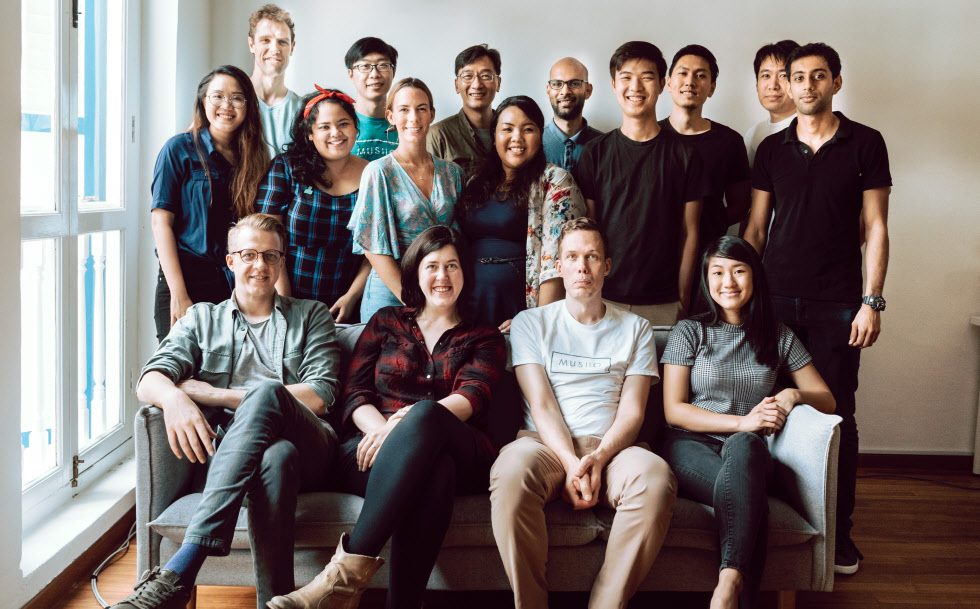The birth of Musiio is the story of how an AI (articifial intelligence)-based start-up came about thanks to a ‘talent investor’ facilitator, and where a Swedish tech-talent individual found his match.

Technical lead and CTO Aron Pettersson and CEO Hazel Savage found each other over a cup of coffee via Entrepreneur First, an unconventional company that interestingly invests in matching talented and ambitious individuals to find a co-founder and develop ideas and businesses.
Also over a cup of coffee, in Singapore’s vibrant downtown CBD, Aron tells the story of the music-tech company Musiio so far – which went from two employees to fifteen within a period of 12 months. Impressively this start-up also acquired in total 15 deals within 2019, having started off the year with zero customers.
To come up with the idea and ways for Musiio to make money Aron’s knowledge about AI was paired with Hazel’s marketing and business skills and music industry knowhow.
“I joined an incubator programme called ‘Entrepreneur First’. My wife lives in Singapore so I had moved here. Then I met with Hazel and we found that we could be a very good combination. She knows all about the business side of the music industry, has great contacts and knows how to market products, while I know how to build what is needed.”
“It is completely thanks to the programme that I met with Hazel. We have very different backgrounds so it would have been very unlikely we had met otherwise,” he adds.
Entrepreneur First selects the best talents and ambitious individuals with an interest in starting companies to join a half-year programme.
“They take you in before you have an idea, based on scholarships, and take a small share of the company, if one goes through. Half the way they evaluate and decide if they think one has a good business idea or not and decides which ones can continue.”
 After the programme one continues developing the start-up more on one’s own, explains Aron, who has a background studying molecular biology and neuroscience at Stockholm University, followed by Physics at KTH (Royal Institute of Technology).
After the programme one continues developing the start-up more on one’s own, explains Aron, who has a background studying molecular biology and neuroscience at Stockholm University, followed by Physics at KTH (Royal Institute of Technology).
“I’ve always been involved with things relating to IT, including a game I built together with three other friends, and working for a number of other game companies. I have also done some data science and machine learning.”
“As for AI it has been a big interest for me all the way back since I was studying neuroscience when I started to experiment with it on my own. It was exciting to work with, and then things have evolved fast with AI, especially in the last few years.”
Musiio is based on what problems within the music industry that could be solved with the latest technology, using AI and machine learning.
Today, the world is being absolutely flooded with new music, and actually most of it will go unnoticed by the majority of consumers; music sold via Bandcamp or streamed via Spotify and Soundcloud for instance – where algorithms are doing their best to match one’s taste with the music in databases. And the more music the more difficult it gets to find the type of music that you favour.
The B2B side of the industry are facing similar problems. Groups and businesses that are looking for music are for example disc jockeys, Artists and Repertoire (A&R) persons and production music companies.
The gap between the user and the music they are looking for will continue to get wider as a catalogue grows or as more and more new music, including new styles, is published via a variety of channels.
“Imagine you have a catalogue with 40 million songs in it. Then you want to find something, say some electronic music with 120 beats per minute that has a positive vibe and matches the image you have for your scene. How do you do that based only on the human capacity? It is nearly impossible; you cannot remember what is there. You can only hope that you might have heard something before that could fit.”
That is where Musiio comes in with solutions for search, categorising and tagging – tedious work that a machine can perform much more effectively than humans, and on large scale. Their AI technology can find tracks that fit a certain sonic profile. Instead of finding exactly the track you search, it returns tracks that sound similar.

Any large catalogue with music needs to be managed with some type of meta data with information what kind of music it is, including for instance information about the tempo and style.
“For advertising, for instance, you want to match the music to what happens in the script and you then need a lot of parameters to search on.”
“Musiio’s technology can scan a catalogue of music of any size, listen to the sound files and describe them. It takes 15-20 seconds per file but you can do unlimited files simultaneously. It keeps on ticking. And that’s the beauty with this technology; that it can cope with any volume of music. We have customers going through 20 000 files per day.”
Music labels and production libraries can now dive deeper than ever before into both their own catalogues and new material.
More precisely it can work like this: an A&R person teaches the AI what sort of music they would sign. Then it analyses and returns a sensible playlist of tracks from newly released music online.
Audio Network in the U.K, a production music company, is one of the customers helped by Musiio so far.
“They have hundreds of thousands of songs, so we have delivered the tools for them to be able scan that catalogue. They had a good system also previously. Their problem was the search work. And if you get specific requests to find something with a similar flavour to something else, or they have an example how it should sound, it’s very difficult to remember which those songs are. For that we are using one of our products that enable us to search based on similarities in sound.”
“It’s not absolutely perfect but it is usually around 90 – 95 per cent accuracy. So I’d say it’s quite good after all!”
Musiio have various ways to provide their cloud technology, including via API and with choices of interfaces on top for those less tech-savvy.
Machine learning-wise, Aron says that they have used TensorFlow (open source) as basis. “It has been very useful as a base to develop from. Then we have built our own layer on top of that, specifically to solve sound-based problems.”
Aron and Hazel have clearly struck the right note, given how fast they have grown as a start-up.
“Getting our first customer took quite a while and interestingly three customers signed up the same week.”
“It’s very difficult to anticipate what will happen as a start-up but looking at things with a longer perspective things have progressed well in line with our long-term plans.”
Having the right team members is Aron’s pick as the most important thing in order to succeed with a start-up.
“And it is required to be at least two persons who have the skills in different areas. None of us would have been able to accomplish this company on our own. So we basically have no overlap when it comes to our skills.”

VC-funded from day one Musiio has closed a seed funding round of USD 1 million so far.
Product development and improvements continue. “But we have reached the level where we have many base elements that one can use together and combine in various ways and customise pretty much to what a customer needs. The longer time that passes the more components we have and the more technology we have developed. And that becomes exponentially more powerful,” says Aaron.
Their new off-the-shelf Genre Classifier now includes 84 genres. And just in, they have launched something suitable for, among others, disc jockeys as well; App.Musiio, a self-service that let’s anyone use AI to tag and search their own catalogue of music.
With customers worldwide and increasing types of users this start-up’s success is bound to continue.
